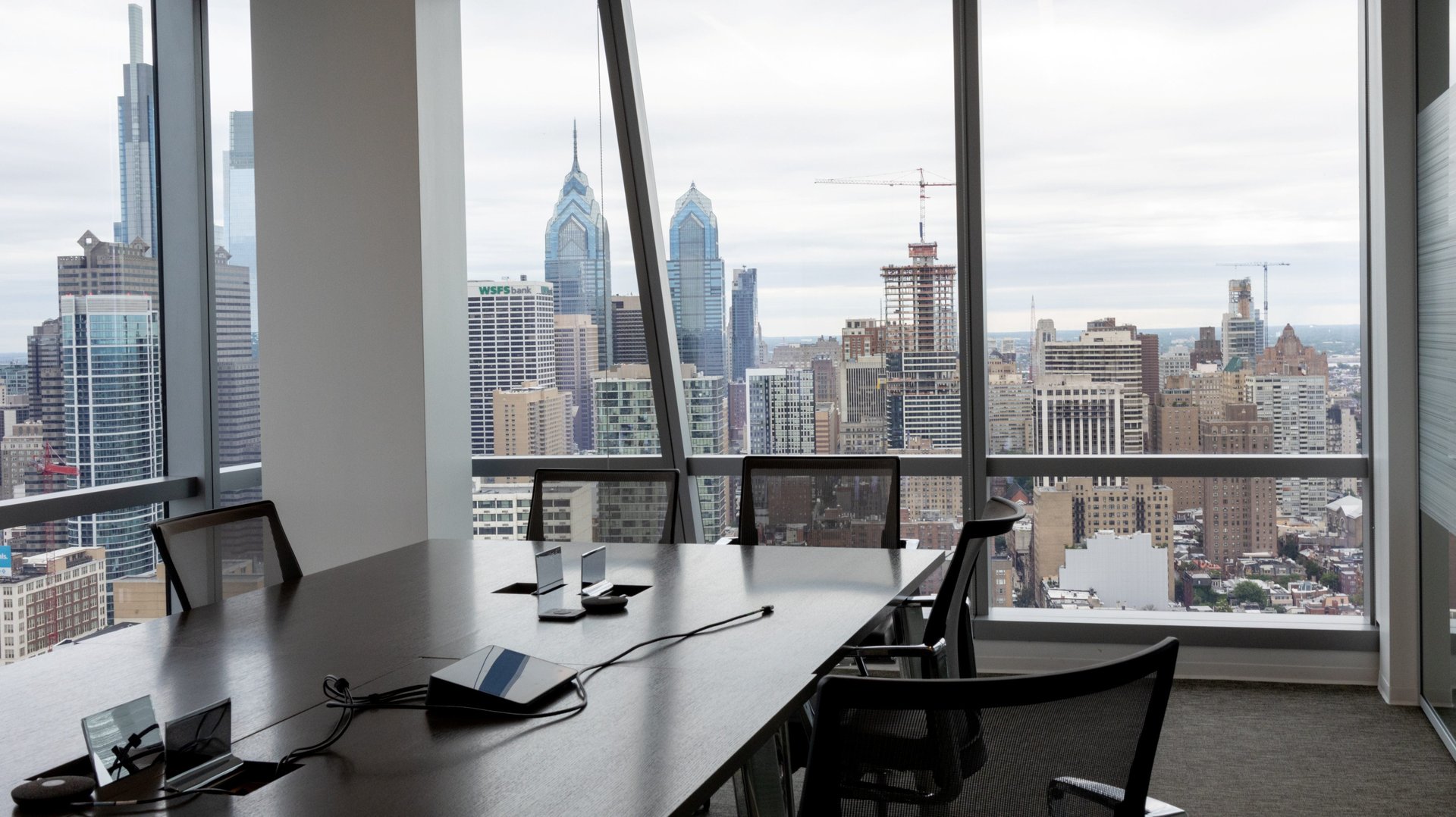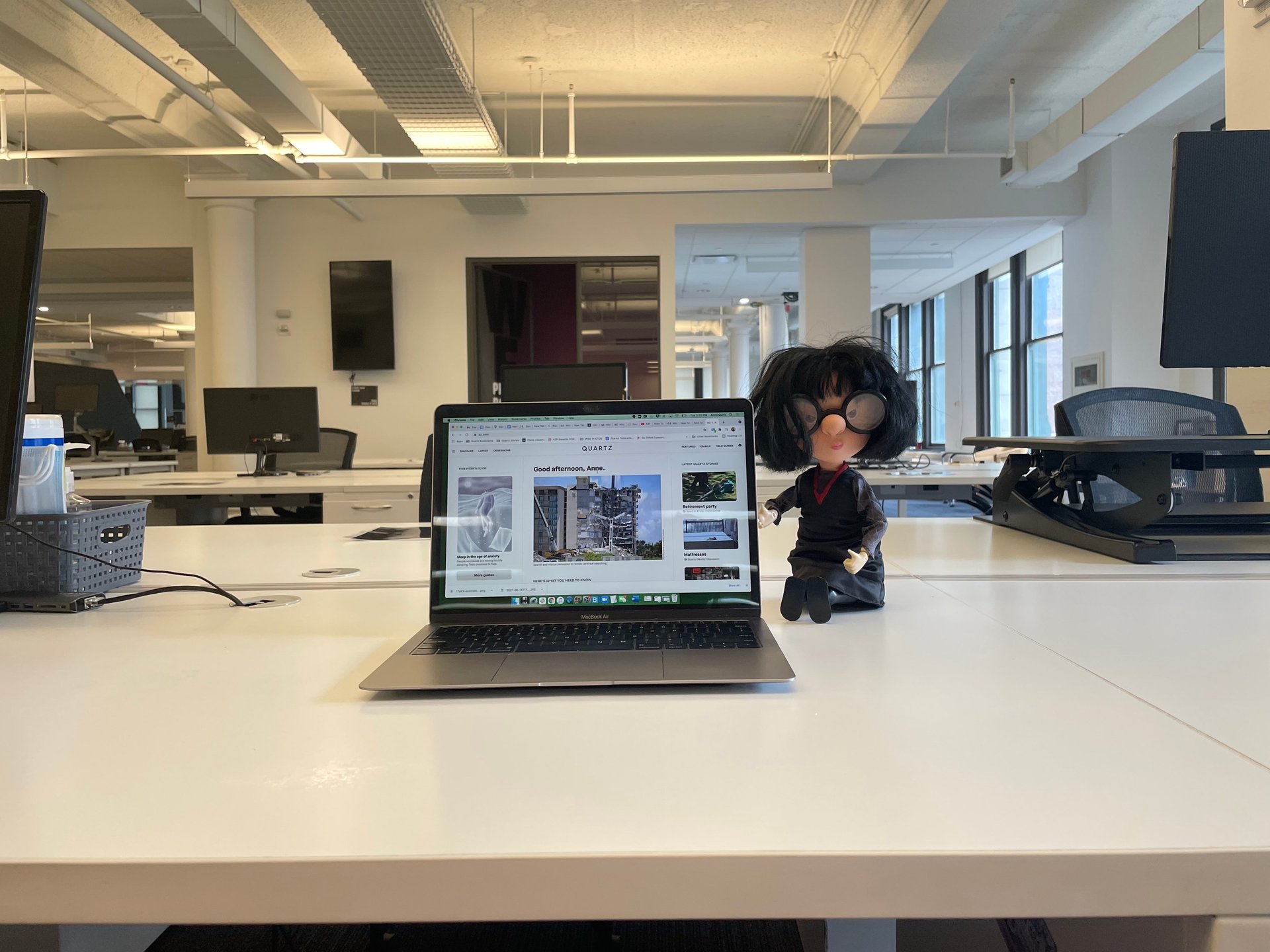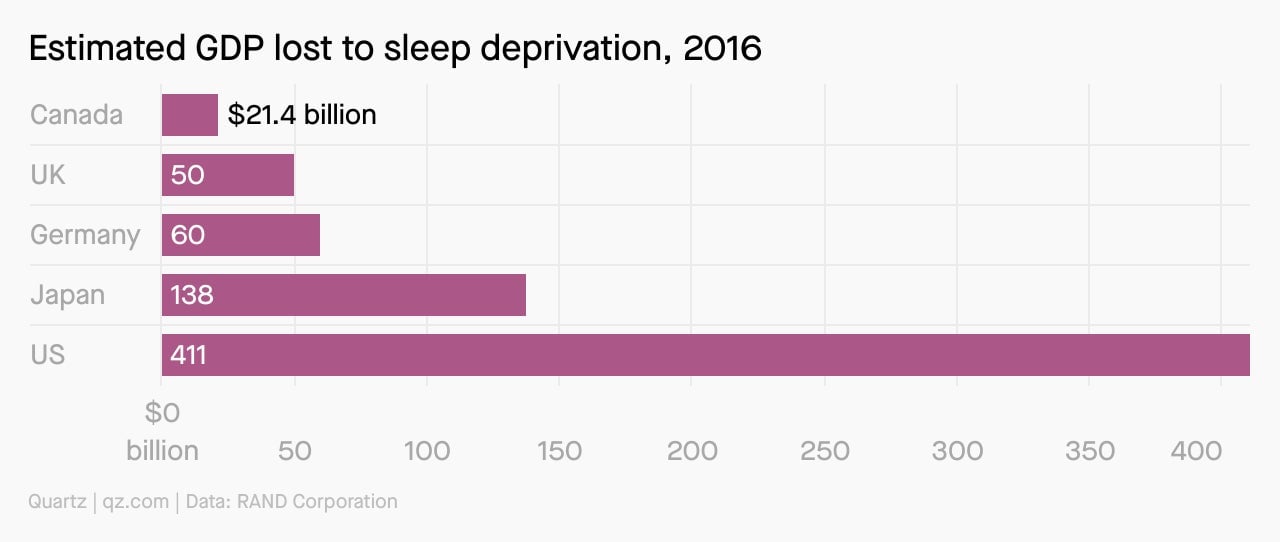The chill of a hot desk
To modern workers everywhere,


To modern workers everywhere,
I’m writing this from a “hot desk,” and it’s leaving me feeling a bit cold.
Like many companies that have reopened their offices after the pandemic, Quartz has adopted a shared workstation system, and new procedures to promote health and safety. Social distanced and sanitized, my desk feels like a surface where no variant of SARS-CoV-2 could thrive.
The term “hot desk” was inspired by a 16th-century naval practice called “hot bedding” or “hot racking.” In ships and submarines, soldiers took shifts sleeping in one bed to save space, with the name alluding to the previous occupant’s body heat. Experts like Philip Ross, CEO of the management consulting firm UnWork, say that “hot desking” is the solution for the post-Covid office. He predicts that companies will need 60% less office space due to the popularity of hybrid work arrangements.
It all sounds practical, but there’s a big part of me that misses having my own desk. Being assigned a small piece of real estate in the office used to be part of the thrill of being on staff. It provided a mooring point where one could safely dock for the workweek and keep all sorts of useful and idiosyncratic objects. Clutter was a prerogative. In the drawers of the desks I’ve occupied over the years were pieces of mail, photographs, candy, a cardigan, dress shoes, and an Edna Mode talking doll that I’ve somehow shuffled from job to job over the years. Most of these things were packed in a file box when the office was swept clean during lockdowns.
As ideas about the post-Covid office evolve, I wonder if the office desk will become a relic like manual time punch card machines or overhead projectors. I was chewing over this during lunch, when I walked to the showroom of Carl Hansen & Søns, the mythic Danish furniture manufacturer. At the entrance was a magnificent CH100 desk—a 1970s marvel by Hans Wegner with the deepest set of drawers I’ve ever seen. I asked CEO Knud Erik Hansen what he thought about the post-pandemic rage for hot desks. He shared my lament.
“It is sad,” he said. “It’s a sign of belonging to a company. It’s part of our culture that you have a chair, a table, and an area where you can develop your work. When that disappears, I wonder if your loyalty to the company might disappear too.”—Anne Quito

Five things we learned this week
🍹 Millions of Americans have made their OOO message permanent. A record number of US workers retired during the pandemic.
🛬 The labor shortage has hit US airports. Concessionaires at Dallas-Fort Worth International were instructed not to poach employees from neighboring stores or food counters.
💰 Most millionaires live in the US, China, and Japan. Switzerland, however, has the largest per-capita concentration of residents with seven-figure bank accounts.
🇺🇸 Nearly half of Americans are on public healthcare Massive layoffs during the pandemic likely compelled many to enroll in government-subsidized insurance.
🤐 Serena Williams isn’t going to the Olympics. The Tokyo games’ no-family policy may have been a factor.
Speaking of the Tokyo Olympics, Quartz has a newsletter to guide you through this year’s Games. It’s going to be historic, it’s bound to be weird. Sign up for the Need to Know: Tokyo Olympics newsletter for all the details. We’ll send a daily recap starting with the Games’ opening day on July 23.
30-second case study
French entrepreneur Robin Reecht is in hot water from comments he made about the genesis of Kune, his meal delivery start-up in Kenya. “After three days of coming into Kenya, I asked where I can get great food at a cheap price, and everybody tell me (sic) it’s impossible,” he said in an interview with Techcruch. “It’s impossible because either you go to the street and you eat street food, which is really cheap but with not-so-good quality, or you order on Uber Eats, Glovo, or Jumia, where you get quality but you have to pay at least $10.”
Kenyans couldn’t disagree more. Many went on Twitter to criticize Reecht and Kune’s service.
Meanwhile, the entrepreneur also announced that he has already raised $1 million in pre-seed funding—something that further aggravated many in the Kenyan tech startup sector. Last year, only 6% of Kenyan startups that received more than $1 million were led by locals, according to an analysis by Kenyan firm Viktoria Ventures.
The takeaway: Even though startup funding in Africa has been on the rise, startups with white founders are still attracting a disproportionate chunk of the funding. So not only did Reecht appear to slight Kenyan food culture, he also unwittingly flaunted his white privilege by talking about how easily he raised money for his company.
Reech later told Quartz that he regretted making those remarks and understands the backlash they inspired. He fears they might undermine Kune’s operations. But he promises the capital the company has amassed will be put to good use. “This is an industry that is very operations heavy and labor intensive,” Reecht said. “We will use funding to build an entire factory, hire 30 people in production, 100 delivery drivers, 10-15 marketers, 10-15 user experience people, among others.”
As Quartz Africa editor Ciku Kimeria notes, “It is unlikely that this dust up will permanently harm either Reecht or Kune. But the discussion of power and privilege in the African startup scene is unlikely to go away soon.”
Quartz field guide interlude

That groggy, I-need-coffee feeling you get after a night of not sleeping enough? There’s a real economic cost to it.
Charting economic losses from sleep deprivation

Read more about the ramifications of our insomniac patterns in our field guide on the range of tech hoping to cure it.
Not yet a member? You won’t want to sleep on this: get 50% off your first year of membership with the code SUMMERSALE.
Words of wisdom
“The trick is to operate by interruption. Don’t fight it; don’t be annoyed by it—welcome it. You will get more accomplished each time and your capacity for dealing with problems will increase.”—Milton Glaser
The design world’s most celebrated workaholic passed away on his 91st birthday a year ago this weekend. The School of Visual Arts’s archives published a gallery of images depicting him happily toiling at his desk through the years.

It’s a fact
CEOs can’t stop talking about the US labor shortage. Quartz’s Michelle Cheng found that up until 2021, there had been fewer than 60 mentions per quarter of the phrase “labor shortage” on company earnings calls. In the second quarter of 2021, “labor shortage” was referenced 136 times.
ICYMI
There’s a strategic way to set up a desk for maximum productivity. For one, think of it as a cockpit, “a steering center for all your working needs,” Amy Wang wrote in this gem from the Quartz archive. “If your desk feels burdened or unbalanced, it helps to have a flow. Try laying out heavier things (computer monitor, books, mugs) on the left and keeping the right side light and airy (pens, sticky notes, open space). As eyes naturally moves from left to right for English speakers, it’ll follow the slope—leading to a pleasant, weightless feeling. Right-to-left readers, maybe try the other way.”
Office tunes
It was too quiet in the Quartz office while this newsletter was composed. This edition of The Memo was produced listening to Ra Ra Riot’s rousing anthem “Boy” and “It’ll Be A While,” a reassuring new ballad by PigPen Theatre Company.
You got the Memo!
Our best wishes for a cool week. Please send any workplace news, labor shortage talk, and desk organization tips to [email protected]. Get the most out of Quartz by downloading our app and becoming a member. This week’s edition of The Memo was produced by Anne Quito and Heather Landy.